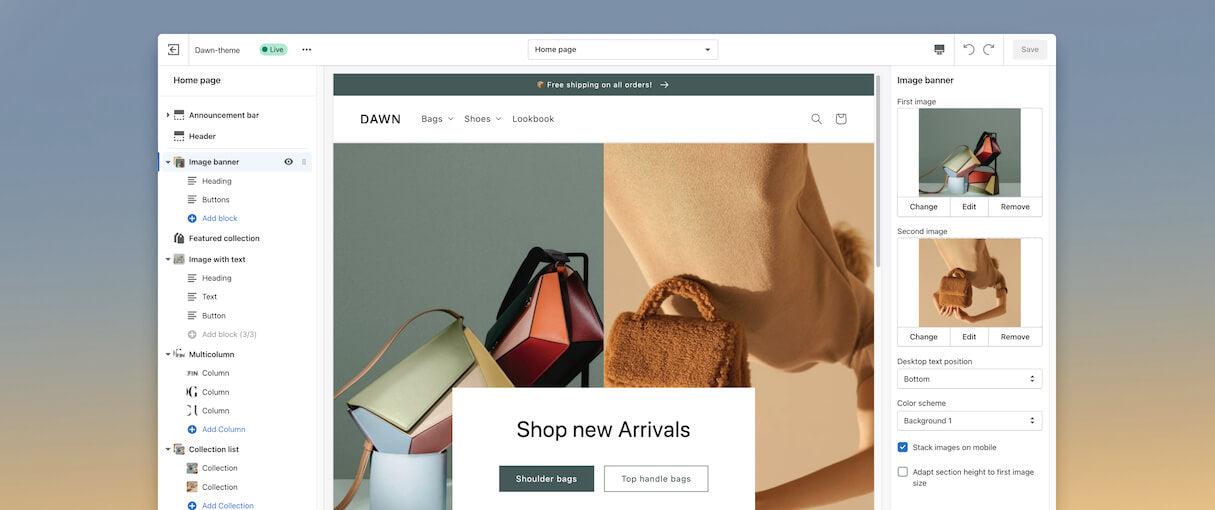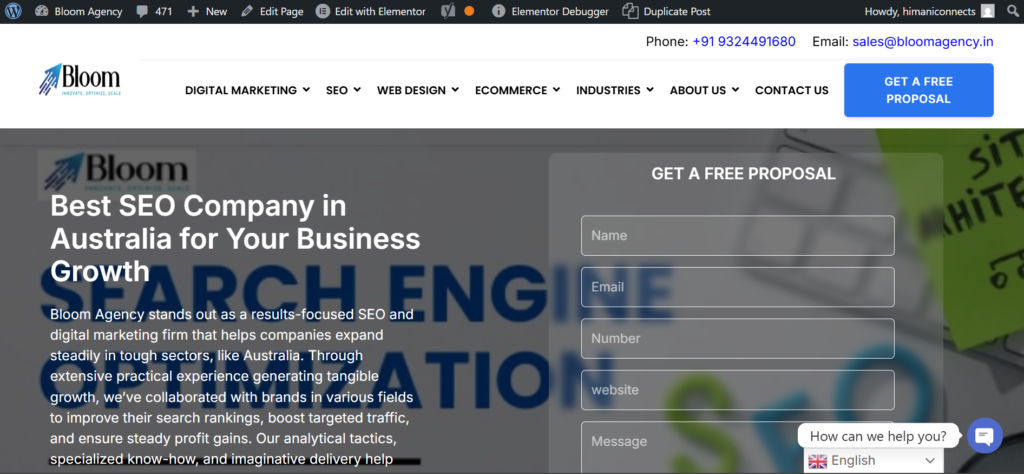For a user who needs all his solution in one stop to get started with an online shop with minimal technical hassle, Shopify is ideal. You are likely a catch if you like a streamlined platform where hosting, security, and e-commerce features are built-in for you. It’s also best for businesses that focus much on online selling.
While WordPress with WooCommerce is great for people who want maximum customization and control, a person with technical knowledge or is willing to work with developers can find freedom here. In fact, it is perfect for content-heavy websites or stores that require complex customization.
When it comes to choosing between Shopify and WordPress web design and eCommerce store, major considerations should be made based on their strengths and how well each one plays toward your goals in business. Below is a comprehensive comparison to help you decide upon the best platform.
Table of Contents
ToggleShopify vs WordPress: Quick Comparison
| Feature | Shopify | WordPress (with WooCommerce) |
|---|---|---|
| Ease of Use | Very user-friendly | Steeper learning curve |
| Customization | Limited compared to WordPress | Highly customizable |
| Hosting | Included | Self-hosted (you choose hosting) |
| Sales Features | Built-in ecommerce tools | Requires WooCommerce plugin |
| SEO Flexibility | Good for basic SEO | Excellent with the right plugins |
| Pricing | Starts from $29/month | WordPress itself is free, hosting varies |
Shopify Overview
Shopify is the platform specifically designed for an e-commerce website or online store. The Shopify user experience is quite user-friendly, offering a seamless stream of powerful features targeted to guarantee success in e-commerce.
Ease of Use: The well-designed Shopify interface will enable any user, even with only a few technical skills, to build and design an online store without difficulty.
2. In-built e-Commerce functionality includes Inventory Management, Payment Processing, and shipping optimization.
3. Security: From SSL certification down to PCI compliance, Shopify will not compromise on secure transactions and data protection.
4. Scaling: With Shopify, one can defiantly scale up their e-commerce store for growth. Be it small or big enterprise, Shopify handles increase in traffic and sales.
5. Shopify Designer and Developer from Bloom Agency: A collaboration with a Shopify designer and developer from Bloom Agency, make your Shopify store work and look better with add-ons that give a professional and customized look for your clients.

Overview to WordPress
WordPress is a tremendous content management system that can be applied to virtually any hosting website type; anything from eCommerce thanks to plugins such as WooCommerce.
1. Flexibility: WordPress is highly flexible through the availability of themes and plugins that let one create their own perfect websites, from simple to complex.
2. Cost: Although WordPress is free, hosting, themes, and plugins are not, making it highly customizable compared to other platforms.
3. Control – You are completely in control of the design and functioning of your website with WordPress, which offers various options for coding and integrating third-party plugins.
4. WordPress SEO – Very particularly, WordPress is good in terms of SEO, and when integrated with plugins like Yoast SEO, it can help improve the visibility of your site in search engine ranking.
5. Maintenance: The listed WordPress websites here require updating and monitoring for security and smooth operation. If you prefer a hands-off approach, this may be a consideration.
Shopify vs. WordPress for eCommerce
Pricing
Shopify has tiered pricing that starts at $29/month and tops at $299/month, depending on what you need in terms of features and sales volumes. All hosting and e-commerce, as well as security, are baked into the price.
WordPress is free, but there are costs once you start talking about hosting and themes or plugins like WooCommerce and possibly developer fees. Hosting starts about $5/month, and most premium features and extensions add on to that.
Sales Features
Shopify: It has integrated ecommerce features, including inventory management and abandoned cart recovery, as well as multiple payment gateways and one-click checkouts. It is excellent online selling, offering a quick integration with shipping, taxes, and point-of-sale systems.
WordPress (WooCommerce): WooCommerce provides relatively good ecommerce functionalities, but many essential features that would naturally come in the default are to be included as additional plugins of WordPress. You can completely customize your store, but it would likely need additional setup and maintenance to match Shopify’s seamless experience.
SEO & Marketing
Shopify: Good SEO tools include customizable meta titles, meta descriptions, as well as automatically created sitemaps, but lack most of the advanced SEO features WordPress includes.
WordPress: Most popular for its strengths in SEO, especially through the use of plugins like Yoast SEO or Rank Math. Fully in control of the URLs, meta tags, alt texts and so much more, WordPress proves to be much more robust than other platforms regarding SEO and content marketing.
Setup
Shopify: One can set up an online store really fast on Shopify, using its drag-and-drop interface, prebuilt templates, and e-commerce tools built right in. You’ll be selling pretty fast without worrying about hosting or security.
WordPress: Not nearly as many clicks to set up a WordPress site; this includes finding hosting, installing WordPress, then choosing a theme, and then WooCommerce for e-commerce. Not user-friendly but offers much more control and flexibility compared to the above.
Shopify: Offers a number of quality templates, from free to paid templates. They are mobile-friendly and e-commerce-centered, though customization is not as versatile as WordPress.
WordPress: With thousands of themes (free and premium), it offers flexibility that cannot be matched. Whether you are running a blog, a portfolio, or an e-commerce store, you can really dig in and extend themes through page builders or directly with coding.
It all depends on what you want or need, and basically, your preference. Shopify is a fantastic option for one who is looking for a complete, dedicated eCommerce website solutions that comes with strong built-in features and is easy to use. In contrast, WordPress gives you great flexibility and full control; hence, it wouldn’t be wrong at all to say that for a highly personalized website, one can go with it.
Do you need the touch of a professional in managing your Shopify store? Hire a Shopify designer and developer at Bloom Agency. Our professionalism will optimize your Shopify store in a manner that wholly resonates with your business needs and capitalizes on the ever-competitive marketplace.








Rahul M.
B2B Service Provider